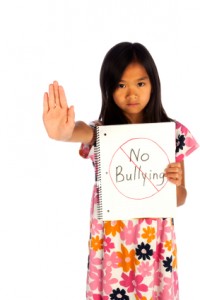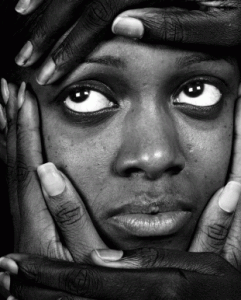|
|
May 18, 2013
 "I just want this to stop! But I don't know what to do." I originally wrote a version of this article for TakePart.com where I’ve contributed education posts. Check out the rest of my articles there.
My email from teens lessens on weekends. This may seem counter-intuitive since kids have more time to connect with friends. But school is where most of the social garbage gets dumped and spread around.
If you read your teen’s texts (I don’t recommend this unless you’ve got real cause for snooping. If not, please respect healthy boundaries.) you’ll mostly find innocuous blips of conversation. But sometimes your child’s circle of friends—and frenemies—can be intentionally cruel and toxic. That’s when parents need to be aware of what’s happening. Our job is to to help kids manage their intense emotions while teaching them appropriate ways to respond to friends who aren’t acting like friends.
Of course, many teens aren’t fans of sharing friendship issues with parents. They assume adult involvement will cause loss of computer and phone access. Or parents’ stepping in will just make things worse. Sometimes those fears are well placed, especially when adults don’t act responsibly. That’s why it’s important to know when and how to help a child who’s being harassed.
More: A Bully’s Paradise: Hidden Halls, Dark Corners and No Supervision
Here are some signs that your child may be having problems with peers. He/she:
- seems upset, anxious, or worried after reading text messages or spending time on social networking sites.
- gets defensive or clams up when you ask about school in general or about certain friendships.
- exhibits a change in appetite, sleep patterns, a dramatic dip in grades, a sudden reluctance to go to school, or a loss of interest in activities he/she previously enjoyed.
If you’ve been observing any of these signs over time, talk with your child, even if he/she insists that everything is “fine.” You know what fine looks like. If what you’re seeing doesn’t look fine, then trust your instincts—but don’t turn this into an interrogation. That will add stress and make it less likely that your child will want to talk to you.
Instead, you might begin the conversation with a straightforward observation. For example: “I’ve noticed that you seem upset whenever you come home from Emily’s house.” Then close your mouth, look into your child’s eyes with compassion, and listen. Hopefully, your calm, loving demeanor will (eventually) encourage your child to open up about what’s going on.
If other kids are targeting your child, be empathetic. Then find out what your child has already tried in an attempt to improve the situation. If he/she has not yet spoken directly to the aggressor, suggest it as an option. Teach your child to let others know that he/she deserves to be treated with respect. Tell your child that staying silent in the face of injustice rarely leads to more justice. On the other hand, when a formerly passive victim stands up for him/herself, the aggressor may realize they’ve been disrespectful. They may stop. Of course, sometimes it takes more than that.
If your child has delivered a clear message repeatedly and the harassment persists, it’s time to get the school involved. If your child wants to talk with an adult at school without your help, let him/her go for it. It’s great training for life. If your child would prefer for you to be there, then be there.
Before the meeting, check out BullyPolice.org and educate yourself on the anti-bullying legislation that exists at your state level. At the meeting, let your child take the lead when talking about his/her experience. Request to see a copy of the school district’s anti-bullying policy.
If the peer harassment persists, demand another meeting with the principal, yourself, and the parents of the child(ren) who has been harassing your child. If the principal and/or the other kids’ parents are unconcerned (“It’s just kid stuff”) or if you feel like you’re getting a runaround (“We’ll work on it”), don’t waste your breath. Go over the principal’s head to the superintendent. Name names. Be a pain. Do not allow yourself to be silenced. Do not stop the pressure until the harassment stops.
Every school has a legal and moral responsibility to make sure that all students are treated with respect at all times. When parents hold schools accountable, schools are more likely to do their job well.

November 27, 2012
I originally wrote this article for TakePart.com where I write a weekly education post. Check out the rest of my articles there.
 Get the message? Got it? Good! Whenever I communicate from a school stage or from my computer, I tell students that our choices should reflect the kind of people we really are. Most of us are good people who care about others. We have a strong sense of fairness. We like to be helpful. We try to understand the other person’s point of view.
Very few of us are truly “mean.” And yet, we often exhibit downright mean behavior (online and off). Whenever I get the chance, I challenge students to think about why that’s the case. I also challenge them to stand up for what’s right, acknowledging that it’s not always easy, especially when no one is standing with you.
Most kids older than the age of five, really do know the difference between right and wrong. But they don’t always do the right thing. Our 21st-century culture of cruelty coupled with a sense of entitlement has taught kids (and many adults) that looking out for anyone but themselves is a sign of weakness.
More: What Every Parent Should Know: How to Help Your Kids Deal With Peer Conflicts at School
Going out of one’s way to be nice to a popular kid, however, will likely earn a student some popularity points of his/her own. But being kind to an “underdog,” especially when popular kids are watching, well, that can be a high-risk move. So can turning down a demand from another student to copy from one’s test paper or refusing to cheat in other ways. And so, kids may feel stuck between their natural inclinations to do the right thing vs. doing whatever it takes to be liked or to get ahead.
We’ve taken a tunnel vision approach to school for long enough, with most of our resources going toward test taking. What’s the point of education without a focus on improving one’s character? Parents and teachers need to make a concerted effort to help students develop the social courage it takes to stand up and be moral leaders. How? Well, here’s an excerpt from my book Teaching Kids to Be Good People, that shows a simple way for us to begin lessons in social courage.
Share this quote with students: “The time is always right to do what is right.” — Martin Luther King, Jr.
Ask, “What do you think about this? Is it true? Too simplistic?”
Talk about a time when you or someone else was being treated unfairly and you stepped up and did the right thing. What happened?
Talk about a time when you didn’t help promote respect, peace, and fairness. What held you back?
Create a challenge to increase acts of social courage. You’ll need paper strips (11 x 2 inches), tape, and a pen.
- Think about a time you stepped up and did the right thing when someone needed a friend or a message of peace. Write a sentence about what you did on a strip of paper and sign your name.
- Connect your strip with someone else’s and create “links” using tape.
- Got more than one act of social courage? Make another link!
Each day keep adding to the chain by actively looking for opportunities to be “brave” in situations where someone needs to do the right thing. As a group, talk about any positive changes you notice in yourself, your family, your school.

November 24, 2012
I just got an(other) email from a teen being tormented by rumors. This stuff makes me angry and frustrated and sad. I have a pretty clear sense of how it makes the kids who’ve been targeted feel…. in a word, powerless! And while it’s true no one has the power to un-do a rumor that’s out there, if you or someone you know is suffering from the damage of a rumor, please read on. You are not powerless.
 Why are they spreading these lies? Hey Terra,
There are people spreading rumours at my school saying I had sex with my boyfriend behind the building. I don’t know how it started, and it’s not true! This is horrible and it’s hurting me and my boyfriend a lot! I am getting many harsh words and looks from people I don’t even know 🙁 What am I supposed to do ? Help me please!!!!!!
Lost and Hurting
Dear Lost and Hurting,
I’m really sorry people are being cruel to you and to your boyfriend. People who spread hurtful lies lack self-confidence and compassion. What can you do about what they’re saying? Well, unfortunately, you can’t un-do the rumor. It’s out there. You also can’t un-do any assumptions people have made about you and your boyfriend. What you CAN do is:
- Hold on to your self-respect.
- Hold your head high because you know that you’ve done nothing to be ashamed of.
- Try not to let them upset you with their “harsh words and looks.” I know that’s not always easy, but you impress me as a girl who is strong and self-confident, so work on staying in control of your emotions.
- Do not talk to anyone about the rumors or about the people who are spreading them. That would only increase the “warfare.” It’s not helpful. Don’t go there.
- If someone says something to you, look them in the eye and simply and calmly say, “That’s not true.” No yelling. No trying to convince anyone of anything. Just state the fact: “That’s not true.” Then end your part of the conversation.
Hopefully this “social garbage” (which is exactly what rumors are) will fade away soon. Your real friends will stick with you. If this garbage doesn’t fade away and you continue to be harassed, please talk with the school counselor and/or your parents.
I hope this helps.
Oh, and read this blog of mine about teen rumors.
In friendship,
Terra
She wrote right back:
Thank you so much Terra!!!! I’m really grateful! 🙂
Then so did I:
I’m glad to know that I’ve helped in some way. Enjoy the rest of your holiday weekend. And on Sunday night, re-read my email, especially the things you CAN do, so if the garbage rumors continue on Monday, you’ll know how to take care of yourself.
In friendship,
Terra
Ninety-nine percent of the time I get email about rumors, it’s from the person being victimized. But that’s just one side of the story, isn’t it? We all know that rumors go nowhere without many willing mouths (and fingers) to spread them. If you’ve spread a hurtful rumor, (whether you started it or not) and you now regret the pain you caused, that’s a good place to start thinking about rumors and all of this stuff. You can’t un-do what you did, but you’re not powerless. You can still make things better. Got some ideas how?

November 13, 2012
by Mackenzie Gavel
Mackenzie Gavel is an aspiring journalist and a senior at NYU, with a double major in Journalism and Psychology. Founder of Belittle the Bullies, Mackenzie is also a blogger for CITYist, the online component of City Magazine.
 Mackenzie Gavel, circa the Teen Years Teachers are supposed to be more than educators. They are supposed to be mentors. Unfortunately, that is not always the case. It is a sad day when an adult acts like an adolescent, and an even sadder one when an adolescent finds herself feeling lost and confused in the wake of an adult’s misguided actions.
I am a naturally thin girl. I’ve never had an eating disorder. But in eleventh grade one of my classmates started a rumor that I was anorexic. The lie eventually made its way to the ears of my math teacher, Ms. R. For those of you who read my blog, you know that I was an easy target in high school. To find myself at the face of an ugly rumor was not unusual. But I did not find out about this particular accusation until I sat, crying, and begging for my guidance counselor to believe the truth. The counselor told me that she never had any reason to believe the lies. That was reassuring, but what could I do about the rumor? It’s not easy to prove to people that you don’t have a psychological disorder.
After meeting with my counselor, I angrily confronted Ms. R. Why would she run straight to the counselor before first talking to me? With just a few questions, I would have told her that one of the other girls had been bullying me —forwarding and changing the wordings of my text messages to the boy I liked and spreading rumors like wildfire.
Ms. R never provided an explanation for her actions and in the weeks that followed she was colder toward me, less approachable. Perhaps she wanted to be the friend to the majority, rather than the advocate for the minority. In doing so she took my life and turned it into a nightmare.
To be the mentors young people need, teachers need to think about their actions. They need to have the proper training to handle difficult situations, and they need to remember that they are the guiding forces in students’ lives.
They need to be more like Mr. McTrunugh, another teacher of mine. One afternoon in his class, a student made a negative comment about my hair style. I did not give her the satisfaction of a reaction, but Mr. McTrunugh told the girl that if she said one more word, it would only prove that she, herself, was unhappy and insecure. Now that is a teacher who was unwilling to stay neutral, sit on the sidelines and watch the bullying play out!
Being a mentor sometimes requires you to stand up for kids. You also have to give them a reason to stand up for themselves with dignity and integrity. A teacher’s job is more than just following a lesson plan. It is to be an advocate, the supportive voice that kids so desperately need to hear.
If there is one lesson that I learned from these painful memories, it is that you never have to apologize to anyone for being who you are. Do not let anyone diminish your integrity. Ever.
 — Older Posts »
| |















